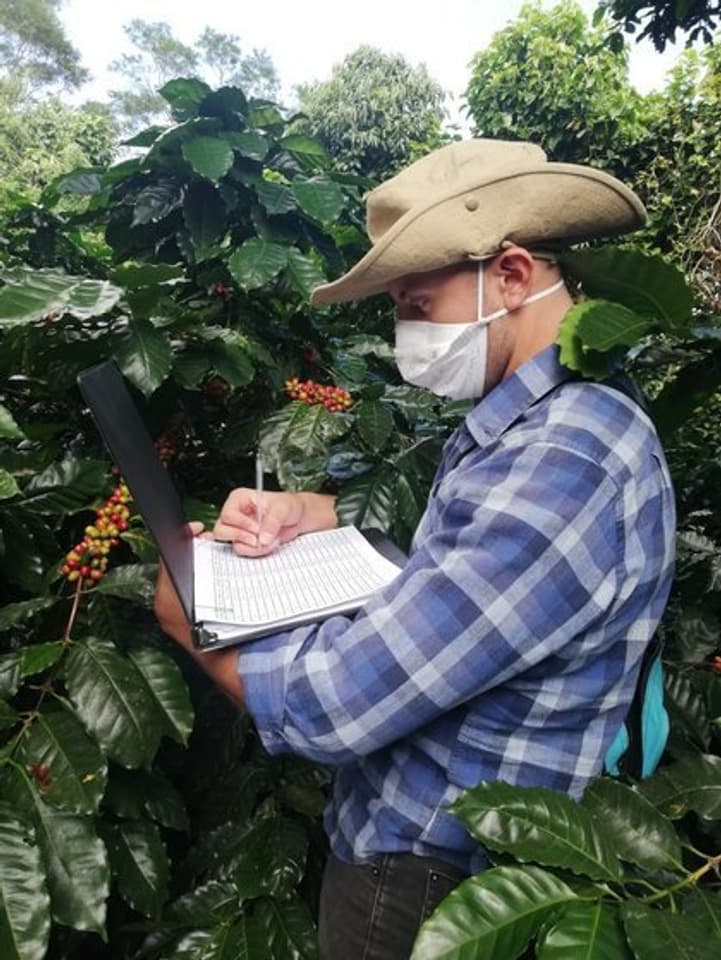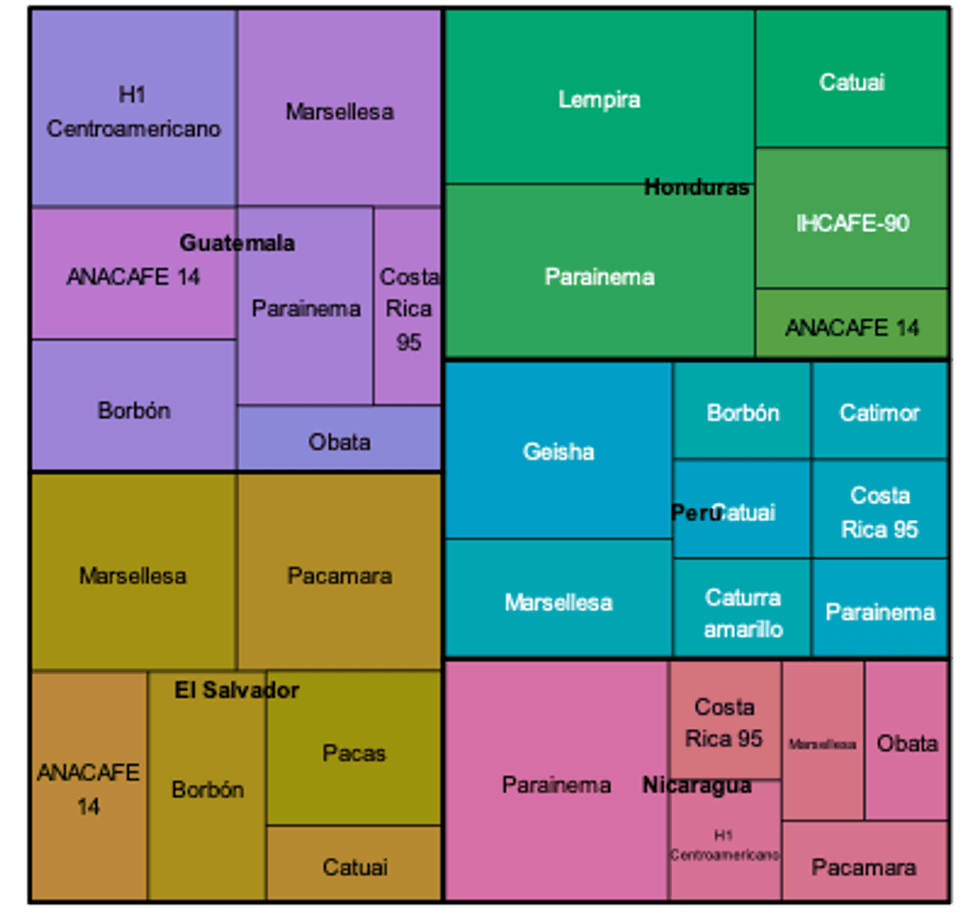Clean Slate
Building a healthier seed sector in Latin America
WCR is working with the MOCCA initiative to clean up seed lots in five countries
Smallholder coffee farmers face many challenges, including changes to coffee landscapes being wrought by the climate crisis, old and unproductive trees, and coffee diseases, which impede farmers’ abilities to be profitable. A critical but less visible challenge is coffee’s lack of an organized seed sector: When it’s time to plant a new tree, most farmers either produce new seeds from ones collected in their fields or from neighbors, or they obtain them from small local nurseries. However, these techniques are fraught with issues—among them that there is no guarantee these seeds are what the farmer believes they are, nor that they are genetically pure and healthy. Even professional seed suppliers frequently face challenges with genetic purity and seed health.

Josué Callejas, WCR country agronomist, takes down information from a Pacamara seed source in El Salvador.
World Coffee Research (WCR) has been helping to create a healthier coffee seed sector through our Nursery Development Program, which aims to build the capacity of small entrepreneurial and cooperative nurseries to produce genetically pure and healthy seedlings for small farms and farmers. In 2019, WCR joined the Maximizing Opportunities in Coffee and Cacao in the Americas (MOCCA) initiative, which is funded by the U.S. Department of Agriculture and implemented by a consortium led by TechnoServe. The MOCCA program is enabling WCR to expand our seed sector work in Guatemala, El Salvador, Honduras, Nicaragua, and Peru.
The MOCCA initiative is taking on seed sector work in part because the participating countries lack strong legislature and technical assistance to support the distribution and use of genetically pure seeds. MOCCA aims to close those gaps through advocacy and promotion of the use of pure seeds, thus strengthening the coffee community in these five countries while maintaining the true characteristics of the planting materials. Also, WCR will collaborating with partners in the national coffee institutions to evaluate and suggest revisions to regulations and/or certification procedures to professionalize the seed and nursery businesses in the five countries.
In particular, the MOCCA initiative aims to address a core upstream challenge—the training and professionalization of seed suppliers, which is critical for expanding access to pure, high-quality, and healthy seeds and plants. Seed producers sit upstream of the entire coffee value stream—they produce the seeds that get sold to nurseries, which are grown into baby plants that are sold to farmers, who produce the coffee that is sold to roasters. When seed lots are impure, it means every part of the value stream below is compromised, and in particular it introduces substantial risk for farmers. But the converse is also true—if the quality of seeds from a seed lot is improved, it can have widespread impact for a large number of farmers.
One challenge for seed producers is that it’s currently expensive and time consuming to verify the genetic purity of coffee seeds—meaning that an essential risk-mitigation tool is out of reach for most seed suppliers and nurseries. To that end, WCR has collaborated with scientists at USDA to adapt modern DNA testing approaches for coffee varieties, using single-nucleotide polymorphism (SNP), to enable rapid, accurate, and less expensive verification. SNP technology is able to trace the origin of a plant to ensure that it is true-to-type—in other words, that the plants being sold by nurseries are what they claim to be.
Through the MOCCA project in 2020, WCR worked with partners to identify seed lots producing important varieties in the region. By the end of the year, WCR had identified 58 seed lots producing 15 key varieties in the five focus countries, and began working with them to check the purity of their seed. Seed suppliers can use this information to clean up impure lots. (In 2021, WCR is working to expand to more seed lots to work with.)
After verifying the purity of their seed lots and basic best practices for producing healthy seeds, seed suppliers are linked with nurseries in each country. The nurseries can then be trained in how to maintain the traceability and quality of the material until it is finally delivered to farmers. Upon delivery, WCR and TechnoServe will reach out to farmers to inform them about the importance of quality plants with a known genetic background.
WCR is very excited to be participating in the MOCCA program, and to be making key strides in the process of enabling farmers to obtain genetically pure coffee seed sources—in turn strengthening the coffee sector and smallholder coffee farmers in the five participating countries.
by José María Gómez Vargas, WCR Latin America Program Manager

This graphic illustrates seed sources sampled based on varieties from each country in the MOCCA program. Each rectangle represents a variety, while the size of the rectangle represents the relative number of seed lots for a given variety in a country.